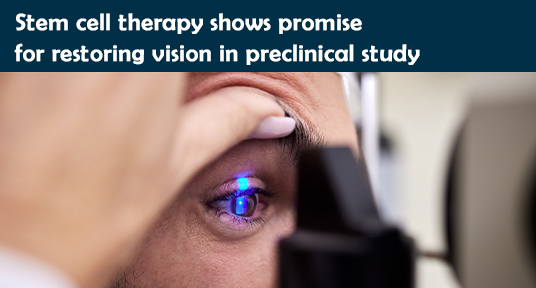Researchers from Duke-NUS Medical School, the Singapore Eye Research Institute, and the Karolinska Institute have developed a method to produce photoreceptor progenitor cells, the light-detecting cells found in the eye, from stem cells and then transplanted them into experimental models with damaged retinas. The preclinical study showed significant vision recovery, potentially marking the first step towards restoring vision in eye diseases characterized by photoreceptor loss. Photoreceptor degeneration is a significant cause of declining vision that can lead to blindness, with no effective treatment currently available. The researchers hope to refine their method to make it simpler and achieve more consistent results.


